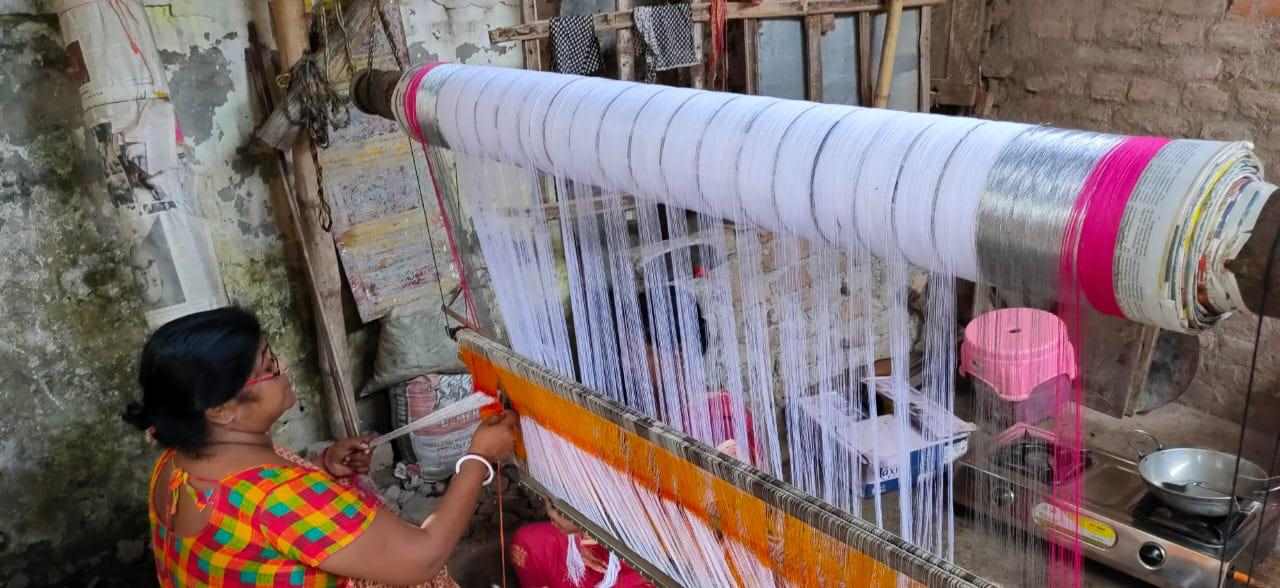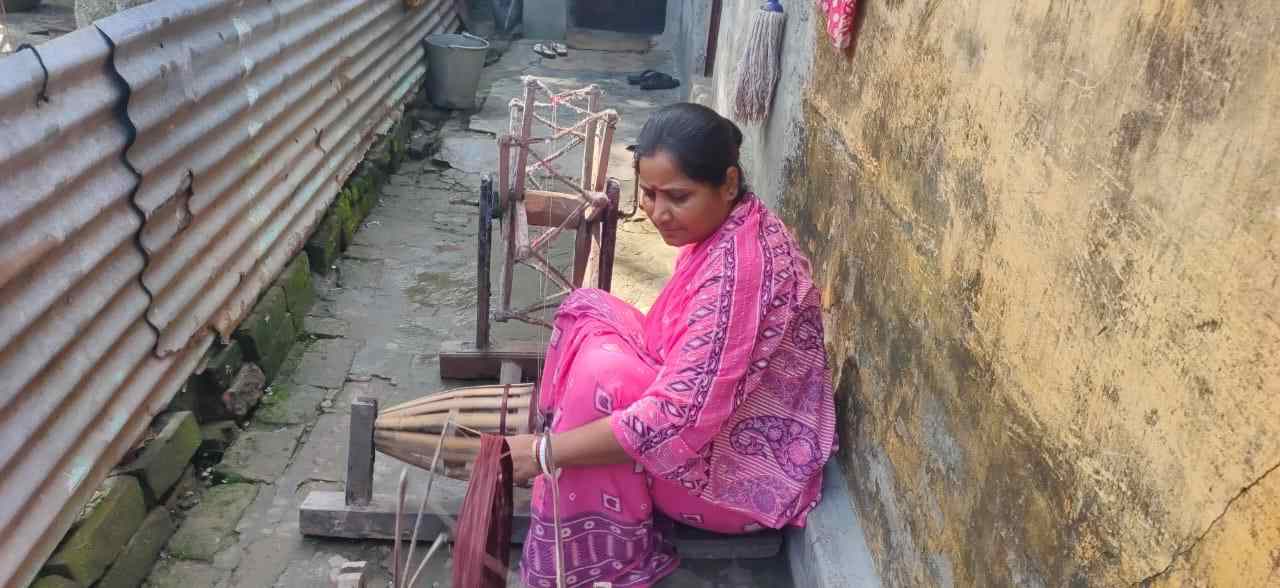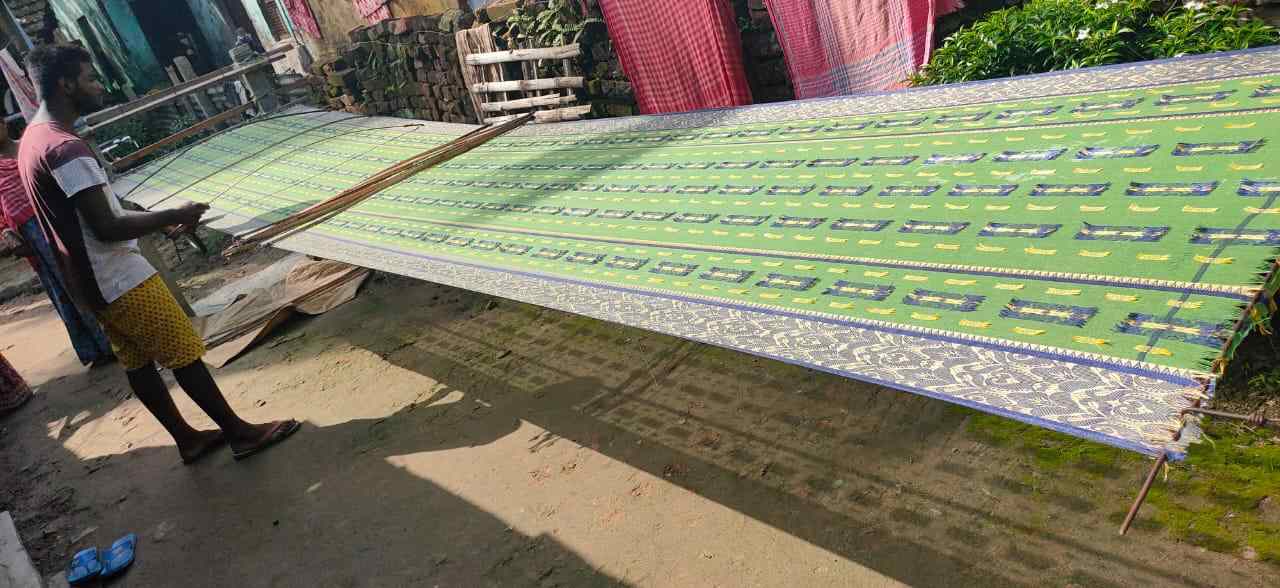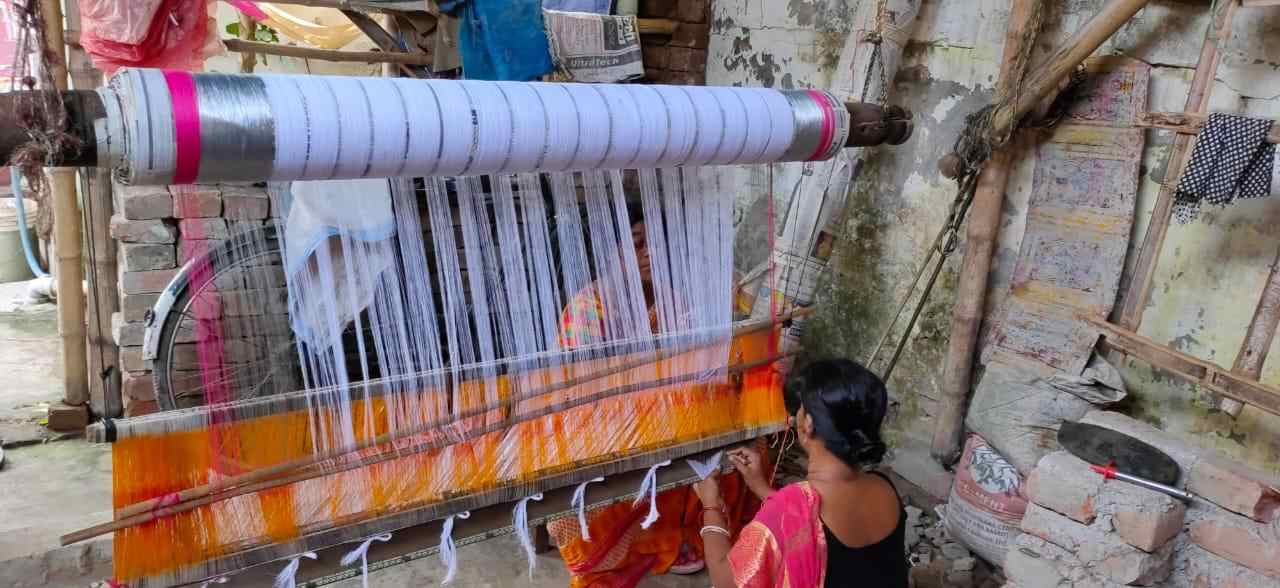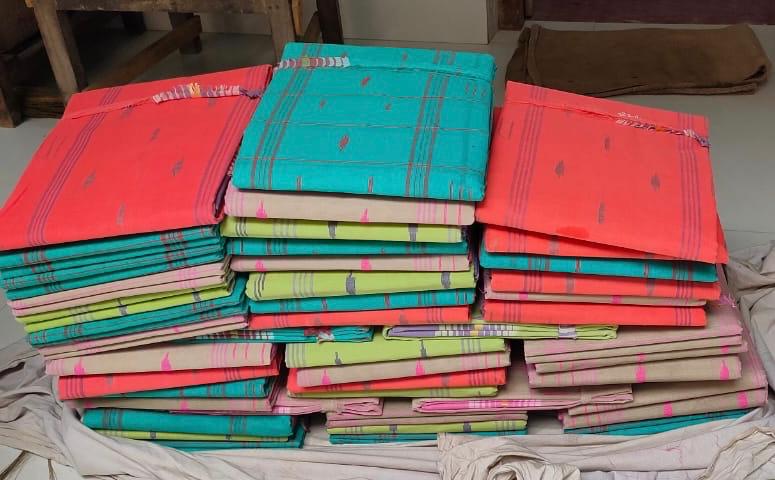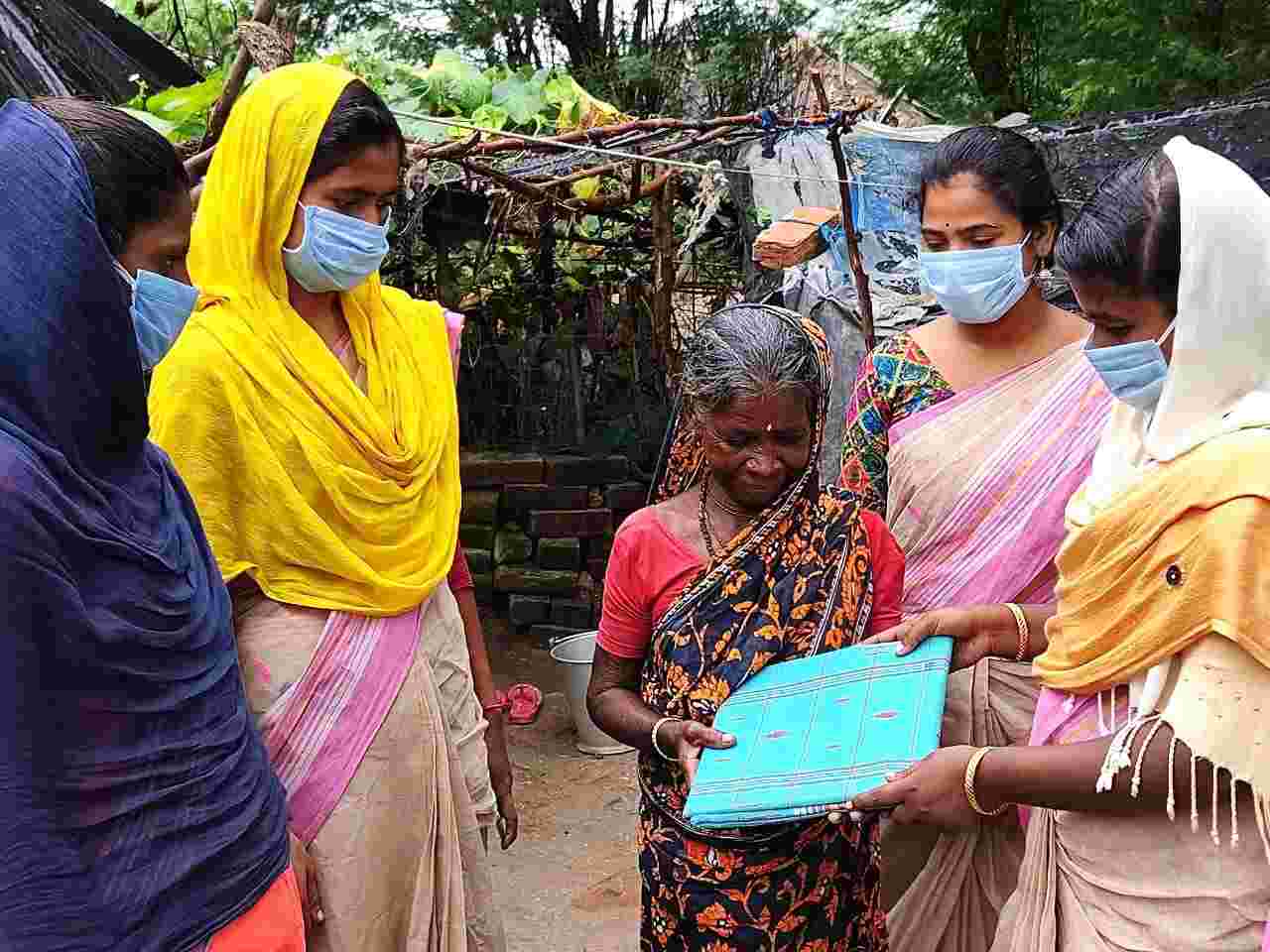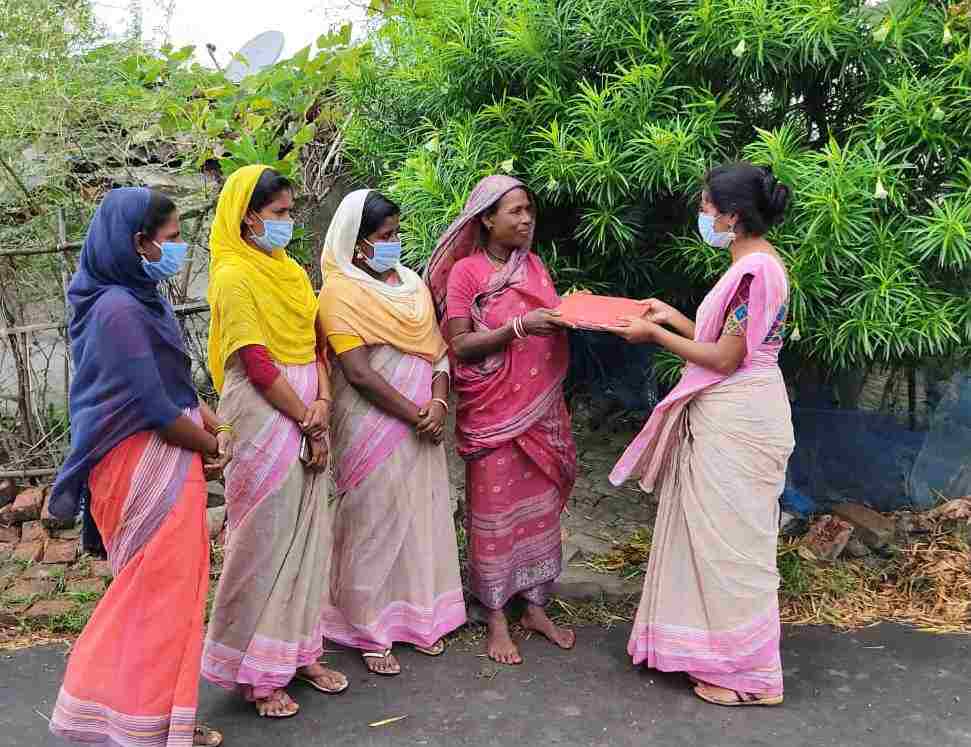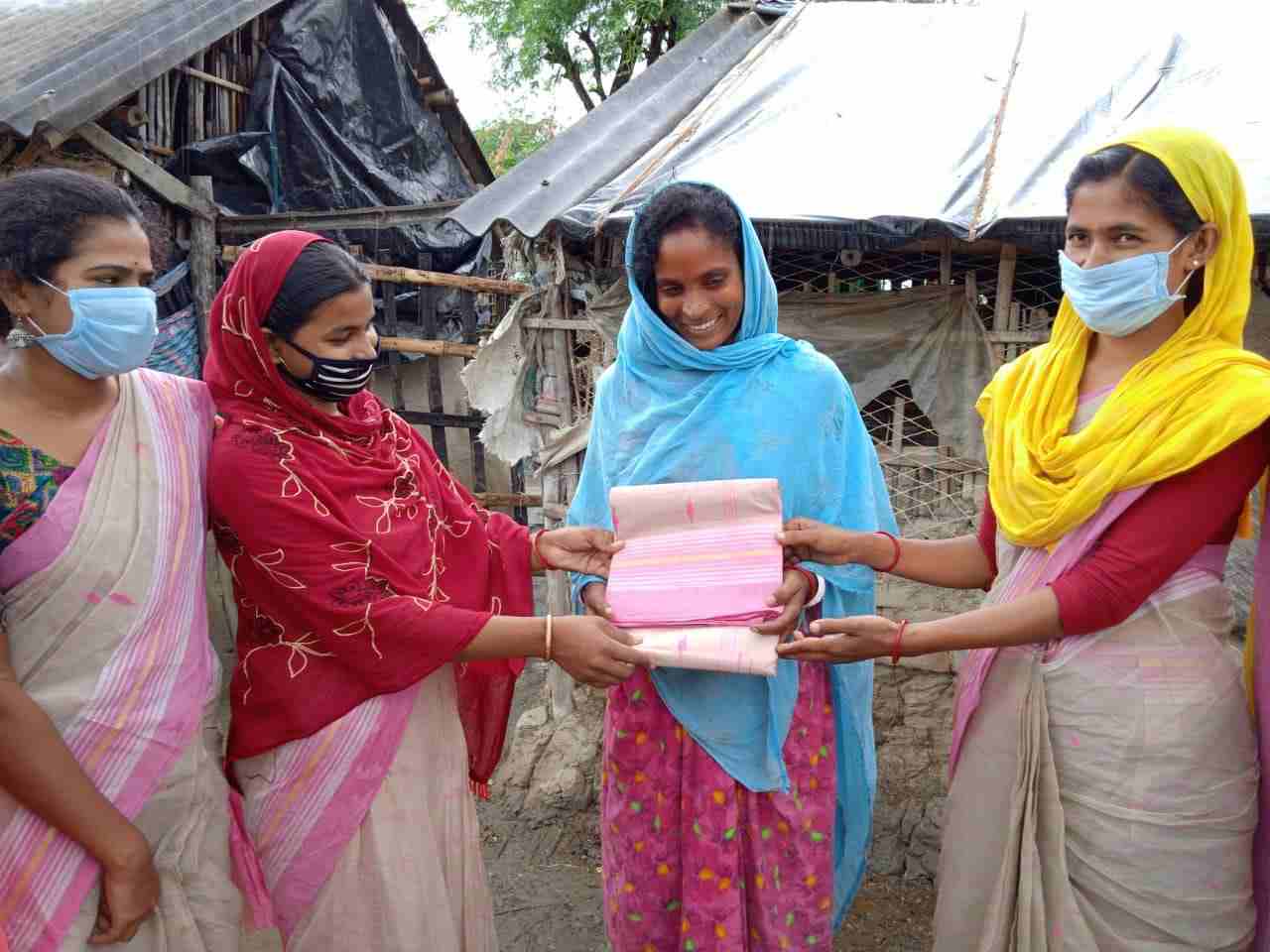Protect Hand Weaving
Preserving Heritage and Empowering Communities
The Protect Hand Weaving initiative, launched during the COVID-19 pandemic, is a community-driven effort to safeguard the centuries-old handloom tradition of Shantipur, West Bengal, while addressing the socio-economic challenges faced by its skilled artisans. Shantipur, celebrated for its exquisite cotton sarees with intricate designs, represents a vital part of Bengal’s cultural heritage. However, the pandemic led to widespread joblessness among the handweavers, threatening their livelihoods and the survival of this cherished art form.
To combat this crisis, Tuhina, in collaboration with the local NGO Santipur Marami, initiated the Protect Hand Weaving project to provide work opportunities to the affected weavers. Under this initiative, hundreds of traditional cotton sarees were commissioned in multiple phases, ensuring a steady income for artisans. These sarees were then distributed to underprivileged women across regions such as Silikhaguri, Khas Sankdaha, Purulia, and Murshidabad during special occasions, bringing both cultural pride and practical value to the recipients.
Alignment with International Social Welfare Standards:
The Protect Hand Weaving project aligns with key international social welfare standards and United Nations Sustainable Development Goals (SDGs) by addressing economic, social, and cultural dimensions:
1. SDG 1: No Poverty
By providing sustainable livelihoods to marginalized handweavers, the project directly supports poverty alleviation, ensuring economic stability for artisans and their families.
2. SDG 8: Decent Work and Economic Growth
The initiative creates meaningful work for weavers, promoting fair labor practices and contributing to local economic growth in a time of crisis.
3. SDG 10: Reduced Inequalities
Through the distribution of high-quality, culturally significant sarees to underprivileged women, the project reduces inequalities by fostering inclusivity and empowering marginalized groups.
4. SDG 12: Responsible Consumption and Production
By promoting the use of handwoven textiles, the project champions eco-friendly and sustainable practices, countering the environmental impact of mass-produced garments.
5. Cultural Preservation and Human Rights
The project aligns with international social work principles by preserving cultural heritage, upholding the dignity of artisans, and recognizing the intrinsic value of traditional crafts as part of human rights and cultural identity.
A Holistic Approach to Empowerment:
The initiative exemplifies a dual-impact model that not only ensures the survival of Shantipur’s handloom tradition but also uplifts the lives of the recipients of these beautiful sarees. By providing underprivileged women with garments of cultural significance, the project fosters pride and a sense of belonging while addressing practical needs.
Community-Driven Success:
Fueled by the generous contributions of Tuhina’s friends and collaborators, the Protect Hand Weaving project is a testament to the power of grassroots action. It demonstrates how community-driven initiatives, aligned with international social welfare standards, can simultaneously preserve cultural heritage, address urgent socio-economic needs, and promote sustainability.
Through this initiative, the artisans of Shantipur have been given a lifeline, enabling them to continue their craft with dignity. At the same time, the project strengthens cultural identity and inclusivity, ensuring that the legacy of Shantipur’s handloom tradition endures for generations to come.
